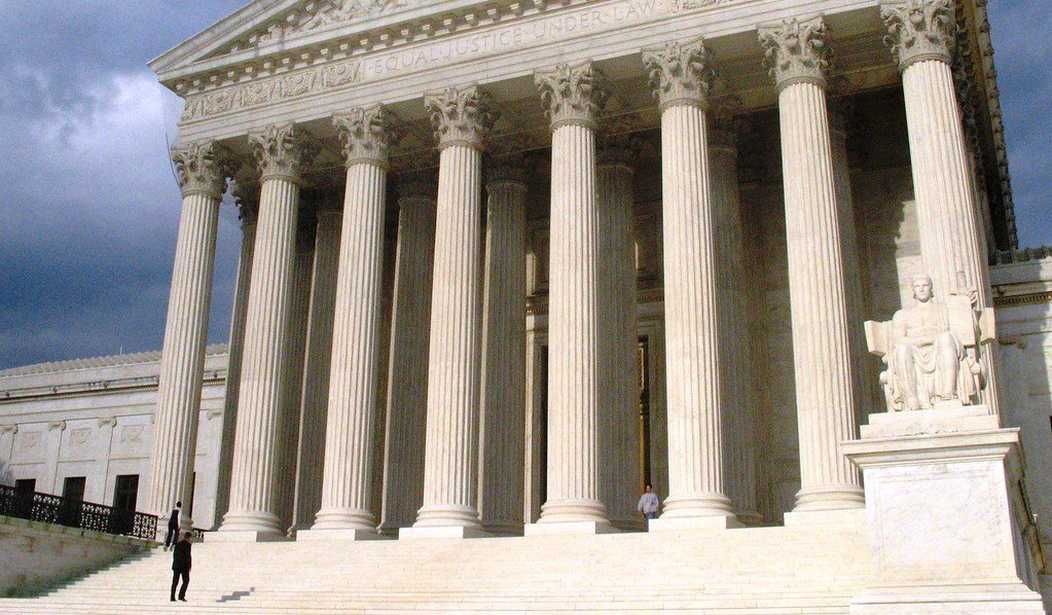In the year-and-a-half since the Bruen decision came down the Supreme Court has declined to intervene in virtually every Second Amendment case that's come before it on an emergency basis, taking a hands-off approach until the litigation has been fully decided by trial and appellate courts.
The Second Amendment Foundation and the Firearms Policy Coalition are hoping to convince at least four justices that the time is ripe to step in and hear a case challenging Maryland's ban on so-called assault weapons rather than allowing the Fourth Circuit Court of Appeals to get away with an almost unheard-of legal maneuver.
A three-judge panel heard oral arguments in Bianchi v. Brown in December of 2022, and it was already strange that we hadn't heard a peep from the panel for over a year. But before the panel publicly released its opinion the Fourth Circuit announced that there was no need for the panel to conclude its work, because it was taking Bianchi en banc. As the plaintiffs write in their certiorari request to the Supreme Court:
The only plausible explanation is that a majority of the en banc court was not pleased with the outcomethat the panel was prepared to reach. And given the court’s grant of en bancrehearing in another case in which the panel ruled infavor of the Second Amendment, it appears that the en banc court was seeking to avoid a similar opinion even seeing the light of day.
The plaintiffs admit that granting certiorari before judgment is "not standard operating procedure", they rightfully argue that what the Fourth Circuit is doing isn't standard either.
A fundamental right is at stake, the proper outcome is clear, and the behavior of the lower courts indicates that this Court’s intervention likely is necessary for that fundamental right to be vindicated.This Court should grant review and hold that Maryland’s semiautomatic rifle ban is unconstitutional.
In a press release, SAF founder and executive vice president Alan Gottlieb stated it's clear "this case must be decided by the Supreme Court,” adding “The type of modern semiautomatic rifle banned in Maryland is in common use across the country, and is the most popular rifle in America. Yet, the Fourth Circuit and other courts of appeals have strained credulity to uphold such bans in the wake of the high court’s ruling in Bruen. This issue must be resolved.”
SAF executive director Adam Krau argues that the Supreme Court's intervention "is necessary to restore order and force the lower courts to properly address this issue in a timely manner, as each day the Plaintiffs rights are being infringed upon.”
Cody J. Wisniewski, FPC Action Foundation's vice president and general counsel declared after the cert petition was filed, “when justice is delayed, justice is denied–this is precisely the issue with what is happening in FPC’s challenge to Maryland’s ban on so-called ‘assault weapons.'"
“After sitting on this case for over a year," Wisneiwski added, "the Fourth Circuit took the extraordinary step of pushing this case to the full Circuit without any party asking it to do so. Worse, the Circuit took this step after the case was already argued before a three-judge panel but before that panel could issue an opinion. This extraordinary action further delaying justice demonstrates that now–not later–is the time for the Supreme Court to step in.”
The Supreme Court's post-Bruen approach to Second Amendment cases has been supremely frustrating to 2A advocates as some federal judges have blatantly ignored or twisted the Court's "text, history, and tradition" test to declare that AR-15s aren't protected arms or find some other excuse to uphold bans in the handful of states where they're currently in place. It remains to be seen if the Fourth Circuit's shenanigans are outrageous enough to get four justices to agree to hear the case without waiting for the en banc decision, but if SCOTUS was serious when it declared that the Second Amendment isn't a second-class right then granting cert to Bianchi would be a great way to prove it.









Join the conversation as a VIP Member